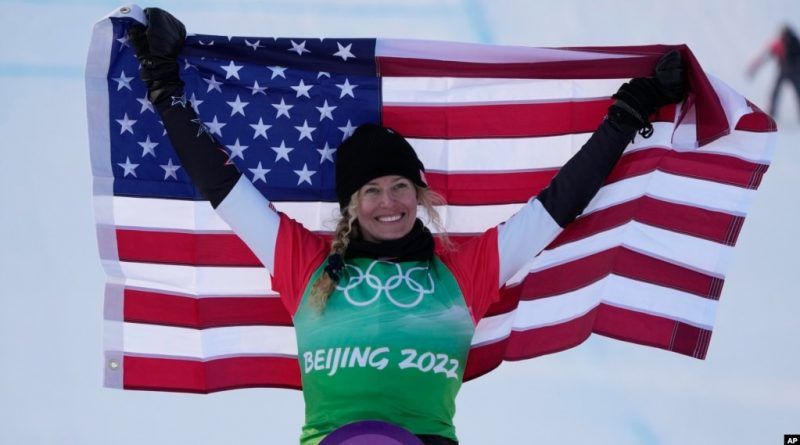U.S. Team Wins First Olympic Gold
U.S. Team Wins First Olympic Gold
Lindsey Jacobellis, the American snowboarder who lost her bid for first place at the 2006 Torino Winter Olympics, finally won her first Olympic gold Wednesday. Jacobellis, one of the most decorated athletes in snowboarding, has been unable to become a champion for three consecutive Winter Olympics. Her win in snowboard cross brought Team USA its first gold medal at the Beijing Olympics.
Mikaela Shiffrin’s earlier disqualification cast a shadow over the U.S. ski team, which is currently second only to Norway in the total number of Olympic gold medals won.
Schiffrin, who won gold in the slalom at the Sochi Games and has dominated technical skiing events for years, went off the slalom course as early as the fifth second of her first attempt. Since the same thing had happened to Schifrin in the giant slalom competition two days earlier, she admitted afterward that, while she could hardly hold back her tears, she even wondered if she could pull herself together and get back to competing.
“I’ve never been in this position before and I don’t know how to deal with it,” she told reporters.
On Wednesday, the U.S. team’s standing at the Beijing Olympics continued to be ambiguous, a trend that has been in place since the start of the Games.
In the men’s freestyle jumping competition – Big Air – American Alex Hall finished only eighth, but his teammate Colby Stevenson won silver, behind Norway’s Birk Ruud.
Skaters Brittany Bowe and Joey Mantia, who ranked high at the world championships and expected to win medals, did not make it to the medals in the end.
American skater Vincent Zhou was forced to withdraw from the men’s short program after he tested positive for COVID-19.
Ryan Cochran-Seagle unexpectedly won silver in the Super Giant Slalom (SG), and Jessie Diggins won her second straight Olympic medal with a bronze in the women’s sprint on Tuesday. Rosie Brennan placed fourth.
Meanwhile, American interest in the Winter Games has waned in recent years, with about 14 million American viewers watching the opening ceremony of the Beijing Games, only about half the television audience of the previous Winter Games opening ceremony four years ago.
The difference in time zones between China and the United States, with too few events falling in U.S. prime time, played a role in the decline in overall television viewership.
